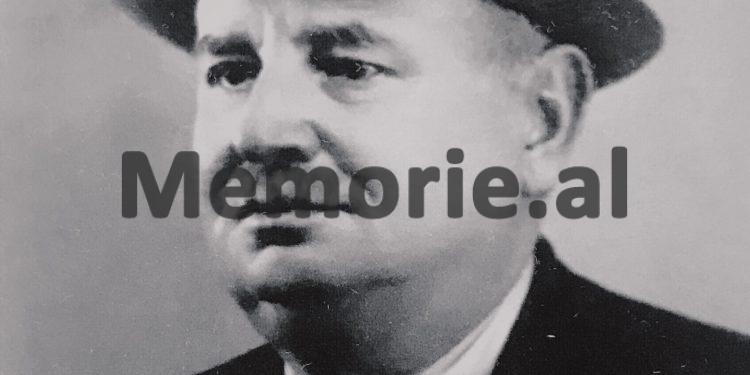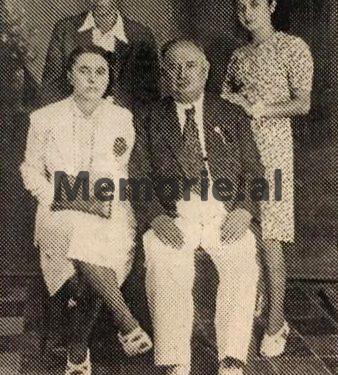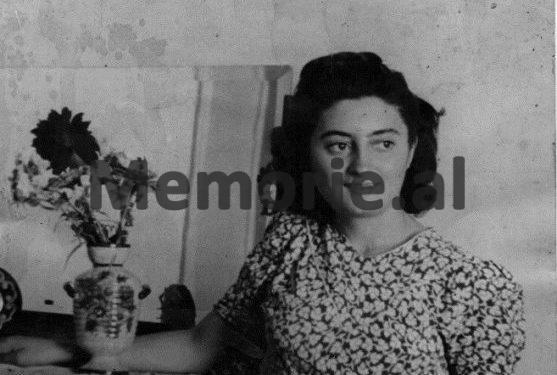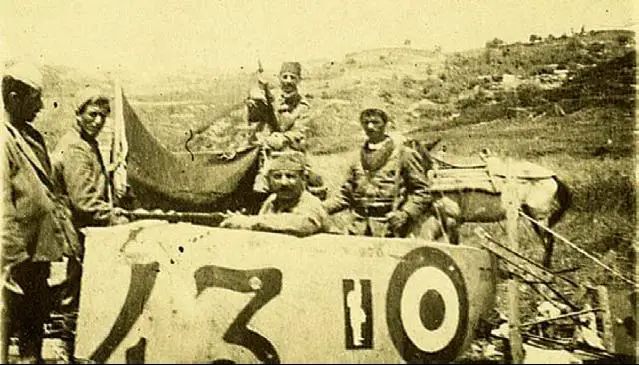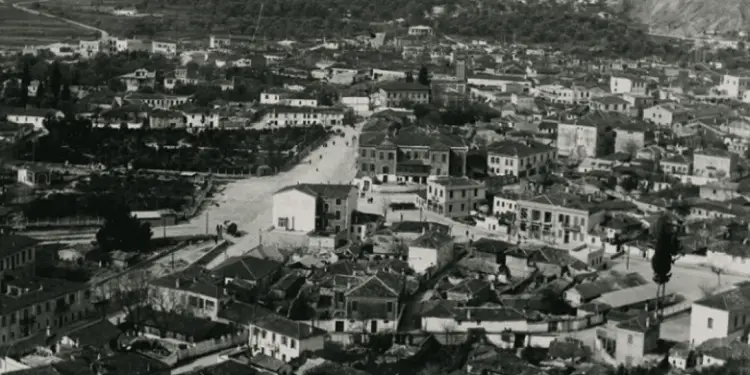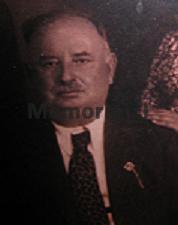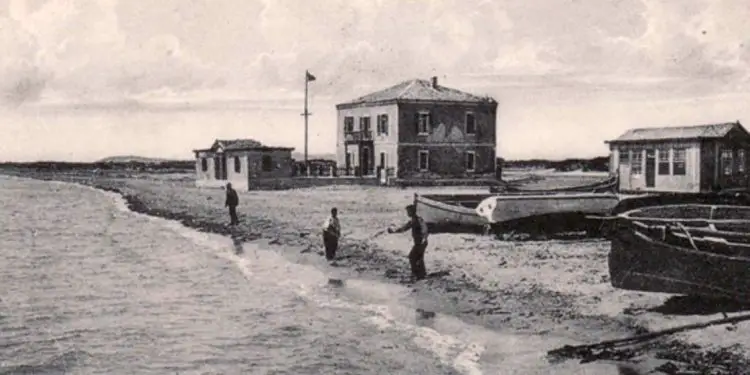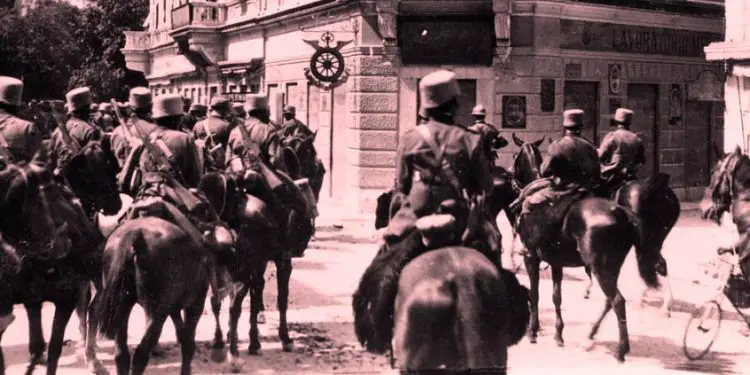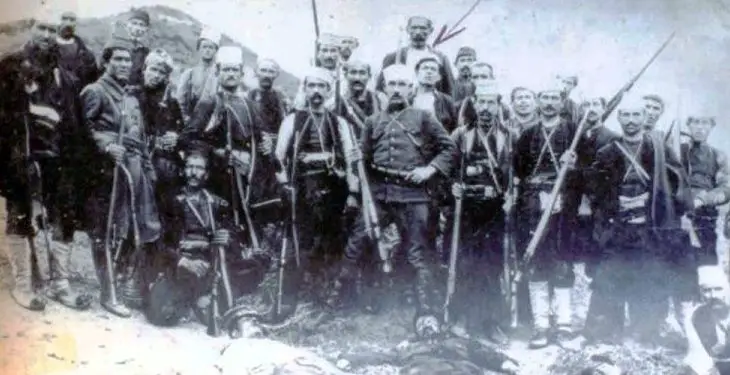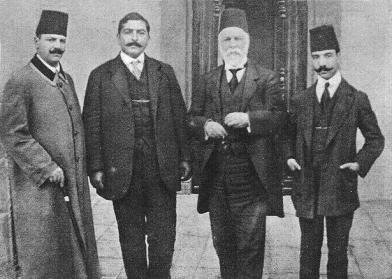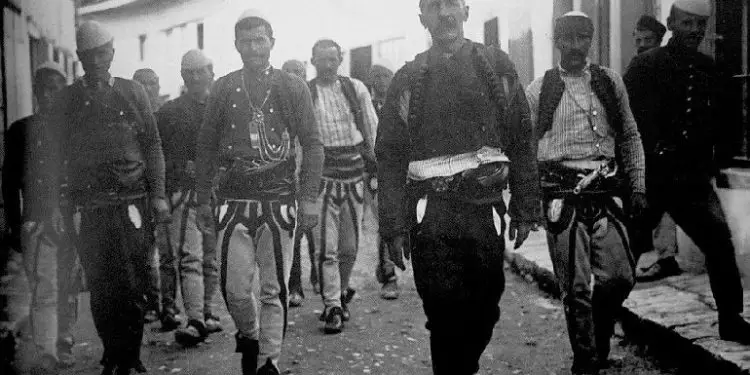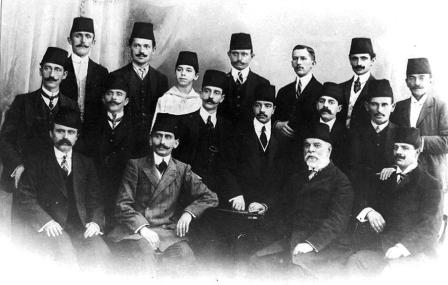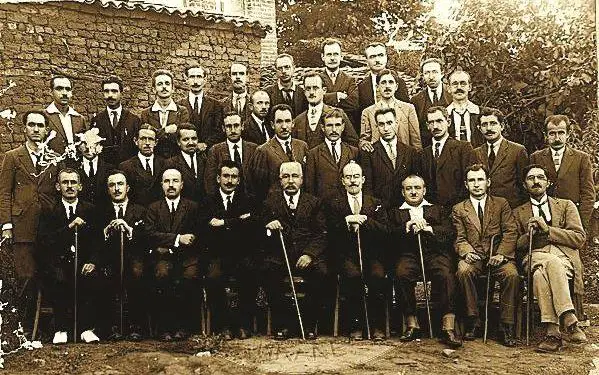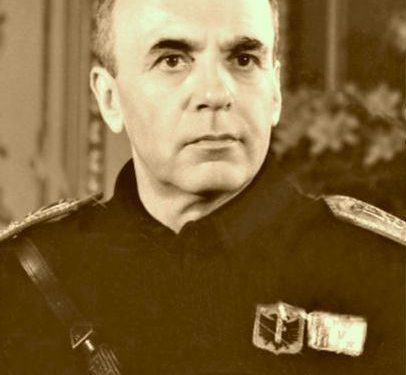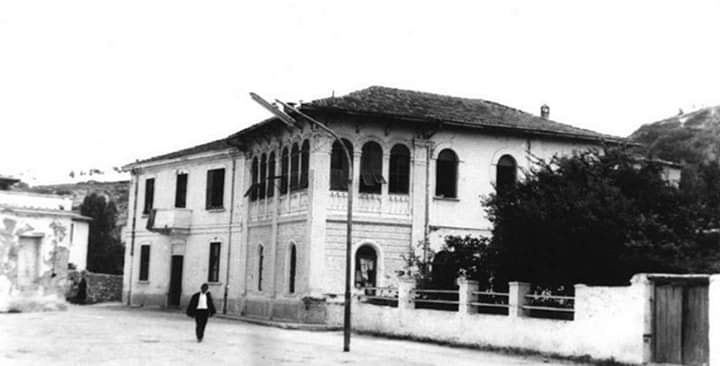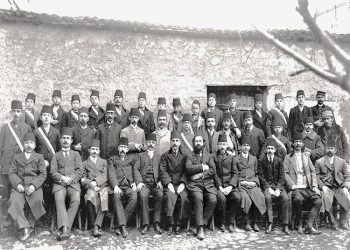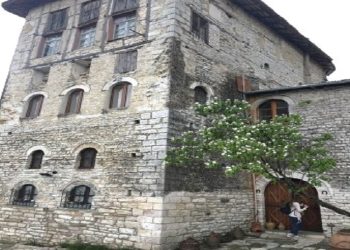Dashnor Kaloçi
Memorie.al publishes the unknown story of Qazim Koculi, originally from the village where he inherited the surname from that family, who after being educated at the “Zosimea” gymnasium in Ioannina, graduated from the Academy of the Military Navy in Istanbul. His deportation from the ranks of the Turkish army and emigration to Argentina, from where he returned home in November 1912, following the call of Prime Minister Ismail Qemali, to contribute to the formation of the new Albanian state. Koculi’s engagement in the country’s political life by being elected MP in the first parliament, the senator in the Congress of Lushnja and Prime Minister of Albania, where he served only for one day and resigned, not to ignite the armed conflicts of its political forces time. The testimony of her daughter, Nurie Koculi, about her father, from staying for 15 years in emigration as an anti-Zogist, returning to Albania in ’39, debates with his cousin, Hysni Kapo, who called on him to join the communists, rejection by him and the accusations against the communists, until his admission to the function of a member of the High Council of State and then as High Commissioner in Vlora, where he was also killed by the Italian authorities together with his friend, the mayor of Vlora, Lele Koçi, in revenge for the Vlora War that he had led as a commander of the volunteer forces. How his family was persecuted by the communist regime, where his son, Kujtim Koculi, was sentenced three times to political imprisonment, while the family remained in exile until 1991.
“After my father, Qazim Koculi, in 1920 had led the Vlora War against the Italian forces, being its commander, on December 6, 1921, he was elected Prime Minister of Albania. Although he was killed by the Italians in 1943, in retaliation for the war he waged against them in 1920, after 1945, when the Communists came to power, our family ended up in prisons and internments until 1990. Thus. showed Mrs. Nurie Koculli, the daughter of the former MP and Prime Minister of Albania, who in 1920 was elected and commanded the War of Vlora. Who was Qazim Koculi, what is his past, and how was the Koculi family treated during the years of the communist regime? Regarding this and other events and facts from the life of the former Prime Minister of Albania, Qazim Koculi, we will be acquainted in this article, according to the testimonies of his daughter, Mrs. Nurie Koculi.
Turkish Navy Officer
Qazimi was born in 1887 in the village of Kocul in the district of Vlora, where his family originated from. At the age of 18, after graduating from high school at the Zosimea Gymnasium in Ioannina, he was sent by his family to pursue higher education in Turkey, at the Navy Military Academy in Istanbul. After graduating, he received the rank of lieutenant colonel and was assigned to the Turkish Navy, serving on a warship, where he also earned the rank of lieutenant. In the middle of 1909, during a naval battle in Preveza, he disobeyed the Turkish commander to surrender to the Italian fleet but continued to fight against them. Based on this, the Turkish Navy issued an arrest warrant, accusing him of violating the military order, and he was forced to flee to Argentina, where he stayed for three years and returned in 1912, where Prime Minister Ismail Qemali was arrested. called on Albanian patriots and intellectuals who were abroad to return and work for the establishment of the new Albanian state. When he came to Vlora, Ismail Qemali appointed Qazimi as the Director of the Naval Port, where he remained until the port was taken over by the Italians and after that, he was appointed Chief of Staff in Brataj, Vlora. In 1917, Qazimi was appointed deputy prefect of Tepelena, where he remained until the end of 1919 when he resigned. In January 1920, Qazimi participated as the delegate of Vlora in the Congress of Lushnja, where he was elected senator. During the proceedings of the Congress, he asked the Senate to draw the attention of the Government to the problem of Vlora, which had been recognized to Italy by the Paris Peace Conference.
Commander of the Vlora War
In 1920, when the Italian army was still in Vlora, Qazimi together with Osman Haxhiu, Hysni Lepenica, Alehm Mehmeti, Qazim Kokoshi, Ali Beqiri, and Duro Shaska, organized an Assembly in the village of Barçalla, where about 310 men from the villages of Vlora, Tepelena, Kurvelesh, and Himara. At that meeting, a 16-year-old commission was elected, headed by Qazim Koculi, Qazim Kokoshi, Alhem Mehmeti, and Beqir Sula, who were tasked with drafting a memorandum to be sent to the commander of the Italian forces in Vlora, requesting that the Italian army had to leave Vlora within two days. After that, on May 19, 1920, in Beun of Vlora, over 2000 men from these provinces gathered, where 1200 of them were armed. At that meeting, the commission that was elected in Braçalla appointed a 12-member committee, called the “Vlora War Committee,” and Qazim Koculli was elected Commander-in-Chief. That committee sent a telegram to General Piacentini, asking him to leave Vlora within 24 hours, with his own forces, or they would be hit. After the Italian side did not respond, the military and volunteer forces commanded by Qazim Koculli who was in Drashovica with 300 men and those of Tepelena and Këlcyra under the command of Koço Tas and Ali Këlcyra, attacked the Italian forces that were concentrated in Kota. As a result of these fights, 17 Italian soldiers, 1 colonel, 1 lieutenant colonel, and 70 officers were killed. Meanwhile, 16 volunteers were killed by Albanian forces. After this victory, on September 3, 1920, Qazim Koculi, at the head of the army forces commanded by him, entered the city of Vlora triumphantly, cheered by thousands of Vlora citizens who had filled both sides of the Skela Street and Flag Square… Regarding this event, which is considered one of the brightest pages in the history of Albania, at that time it was written and reflected by the press of the time. Among other things, in the newspaper, “Politika” of January 15, 1921, Halim Xhelo said: “If it were the people of Labëria Sparta, the body of the Uprising and the Twelfth Commission, the mouth, the eyes, and the ears, Qazim Koculi was the soul”. After the Vlora War, the Government of that time, highly appreciating his contribution to that war, appointed him to the position of Prefect of Vlora, giving him a villa in the Cold Water (from the Italian buildings), which was given to him. made a gift by the Albanian Parliament.
Prime Minister for a day
In 1921, Qazim Koculi, who had won an undisputed authority as Commander of the Vlora War, ran and won a seat in the parliamentary elections. At that time, due to the difficult situation created by the rival groups of the Albanian Parliament, the “Holy Union” was created, which created a commission composed of Bajram Curri, Qazim Koculi, and Avni Rustem. Following the resignation of Prime Minister Pandeli Vangjeli, in order to calm down the chaotic situation that reigned in Tirana, the Supreme State Council, headed by Aqif Pasha Elbasani, appointed Qazim Koculi to the post of Prime Minister. Koculi’s appointment as prime minister was made because he was one of the most popular politicians at the time, due to his participation as commander of the Vlora War. On December 6, 1921, Qazim Koculi, as soon as he took over as Prime Minister, ordered the General Director of the Albanian Post not to allow the sending of any telegram both inside and outside the country, without first checking it. This was soon learned by the opposition at the time, which called the move a political scandal. Realizing the mistake he had made, Qazim Koculi resigned that day. Regarding this in his memoirs, Ekrem Bey Vlora wrote: “Among the strange events of this turbulent time, I would like to recall the appointment of Qazim Koculi as the Prime Minister of the distinguished naval officer in the fight against the Italians. The democratic current brought him to this high post. But the honest officer (who remained that way all his life) did not take notice of accepting the post and submitted his resignation to the High Council. In less than 24 hours, he resigned and is known in history as the shortest-lived prime minister and the only Vlora prime minister after Ismail Qemali.
In emigration as an anti-Zogist
In June 1924, Qazimi was one of the main politicians leading the Union Organization and the uprising to overthrow the Vërlac Government, and after its overthrow, Qazim Koculli was one of the candidates for the post of Prime Minister together with Sulejman Delvina and Fan Noli. who won that post by a lot. In the new government, Koculi was appointed Minister of World Affairs, and after the fall of Noli’s government, the return of Ahmet Zogu to power, he left Albania along with many other politicians who had led the “June Revolution” of 1924. , which was in fact a coup. After spending some time in Vienna, Qazimi then moved to France, where he reviewed his political stance, reflecting on his participation in the June Movement. Based on this, Ahmet Zogu appointed him head of the “Kosovo Committee”, linking him to a salary of 30 gold napoleons, together with Kol Tromara and Bedri Pejani. According to the memoirs of Sejfi Vllamasi, then in the Committee “National Union”, which consisted of anti-Zogist diaspora and had its headquarters in Paris, Qazim Koculi was one of those who openly expressed the proposal that they return to Albania, but was opposed by his comrades. Based on this, he did not return and stayed in Paris until June 1939 when he came to Albania.
Member of the High Council and murder by Italians
Regarding Qazimi’s emigration and his return to Albania in 1939, his daughter Nuria testified: “While my father was in exile, my mother and the villager, Kujtim, and I stayed in our village of Kocul. During those years when my father stayed in France, he sent us a letter through Nuredin Bey of Vlora. We hoped that the regime would change and the father would return, but when the Italians who were our enemies came, we were afraid that the father had fought against them in the 1920s. At that time we were very scared and my uncle’s son, Koçiu, collected newspapers, books, documents, and photos and burned them all in the backyard. In December 1939, my father was appointed a member of the Supreme State Council, and we moved to Tirana. In 1942, Hysni Kapua (his father Qazimi had a cousin) came to our house in the village of Kocul, who asked his father to join the communists. The father replied, “You communists have a wrong war tactic. “Once you hit, retreat, leaving the villagers at the mercy of the enemy and harming them.” Hysni Kapo replied: “It is important that we win.” The father replied: “Even if innocent Albanians are killed” ?! Hysni continued by saying that: it was important for them to win and become known. After that, my father got very angry and kicked Hysni out of the house “, Nuria recalled, adding that the communists would never forgive us for that. Three years later, in November 1942, my father returned home upset and told us that he had been appointed High Commissioner in Vlora. His mother told him not to go to Vlora because the communists would kill him. I also intervened in that conversation, telling him that it would not be the communists who would kill him, but the Italians. After that, my father replied: You know where I have my daughter’s wound, but I believe that Mustafa (Mërlika) will protect me. However, we must be prepared that I may be arrested or interned. After the assassination of Colonel Clement in the village of Gjorëm, the situation became very tense and the Italians blamed Qazimi for that murder. So on January 2, 1942, two high-ranking Italian soldiers came to our house in Tirana and told us: We want Mr. Koculi to go to Vlora. The father came out and told him that he had come from Vlora, but they insisted that he go again, and they would do as he said. The father was told to flee that he would come with his car, but they refused, telling him to go with them. The next day, Qenan Hyska came to our house and told us that: Qazim had been arrested. After a while, Mustafa Kruja’s wife and Xhevat Korça came to visit at home. Mrs. Kruja called Mustafa and told him in Turkish that: Qazim Koculi had been arrested. But on the other end of the phone, he replied, “They killed him.” Together with Qenami, we left for Vlora where we stayed until our father’s forties “, Nuria recalled, regarding the murder of her father, Qazim Koculi, by the Italian forces commanded by General Xanini. Jup Kazazi, who at that time lived next to them in Tirana, also testified about the murder of Qazim Koculi, his daughter Nuries. On the morning of January 3, Kazazi had met in Shkodra an Italian SIM colonel, who told him that Koculi and Prefect Lele Koçi had been killed in Vlora. When Jup Kazazi expressed surprise at their killing, the colonel replied, “Yes, we had a right to take it”.
Persecution of the family by the communists
Although Qazim Koculi had been the commander of the military and volunteer forces in the Vlora War and had been killed by the Italians in revenge for that war, the communist regime in 1946 began to crack down on his family. In this regard, his daughter Nuria said: “In December 1945, the Communists arrested his brother, Kujtim, who had been educated at the Vlora Business School and had returned to Albania after spending some time in Italy. Also, on December 16, 1946, the Communists arrested me, and my close friend Musine Kokalari, and I was released from prison in November 1951. Kujtim, after serving five years in prison, was released in 1950. He was arrested again in 1955 and after serving another ten years in prison, was released in 1965. Kujtim was arrested again for the third time in 1965 and after his release in 1971, he was interned in the village of Kuç in Vlora. At the time of Kujtim’s release from prison, my mother and I were interned in Gradishtë, Lushnja. Our mother died there in that place “, Mrs. concluded her story. Nurie Koculi, regarding the persecution of her family during the years of the communist regime, although her father Qazimi, had been the Commander of the Vlora War, one of the brightest pages in the history of Albania, of which the communists were also proud./Memorie .al




